How to Choose a Fire Suppression System for Your Server Room
by Stephanie Faris on Monday, July 3, 2017 12:00
No space in your office is 100 percent safe from a fire. This is especially true when you combine multiple employees with appliances and building wiring.
Although a fire in your workspaces would provide a serious setback, requiring you to replace equipment and find a temporary working location, nothing would be as devastating as destruction to your server room.
If you operate an on-premise server room or offer I.T. services to other businesses, you likely rely on your networking equipment to remain operational 24 hours a day, seven days a week.
You don't have time to be sidelined for weeks by a fire.
Even though your data and apps are backed up on a daily basis, you still would have to redirect traffic and even at that, you might lose important files in the process.
What They Do
A fire suppression system can help protect your server room against a fire.
Instead of waiting for a fire to break out and using a fire extinguisher to stop it from accelerating, these systems kill the fire as soon as it starts.
This also keeps equipment safe from the damage that fire extinguishers and sprinkler systems will inevitably cause. In most cases, your customers and employees will never have any idea an incident ever happened.
However, there are multiple options when it comes to choosing a fire suppression system, so it's important to equip yourself with the information necessary to choose the right setup for your environment.
What You'll Need
Most fire suppression systems include an alarm that can alert I.T. administrators of danger, as well as smoke detection equipment and a control panel.
This is in addition to the mechanism that suppresses the fire.
There are two major types of fire suppression:
- Inert Gas Fire Suppression Systems—With this type of system, oxygen is removed from the room using inert gases. This keeps the air safe for breathing while also ensuring that the environment will not support a fire.
- Synthetic Gas Suppression-This type of system works to cool the room down. These systems can be dangerous to anyone in the room when they are activated.
As you search for a fire suppression system provider, request a solution that will be able to detect a fire in its very earliest stages and work to both notify you and extinguish the fire as quickly as possible.
Follow-Up and Testing
Once a system is in place, the work isn't done.
Work with your fire suppression system vendor to test each piece of equipment at least once a year to ensure it's still in peak operating condition.
This testing will vary from one type of equipment to another, but the company who sold you the system should have a plan in place to conduct regular maintenance.
In addition to the peace of mind a fire will bring to your support team, end users, upper management, and customers, it will also satisfy the concerns of auditors and regulators.
Business partners, investors, and other entities will also see a company is more valuable when its assets are protected against the worst.
